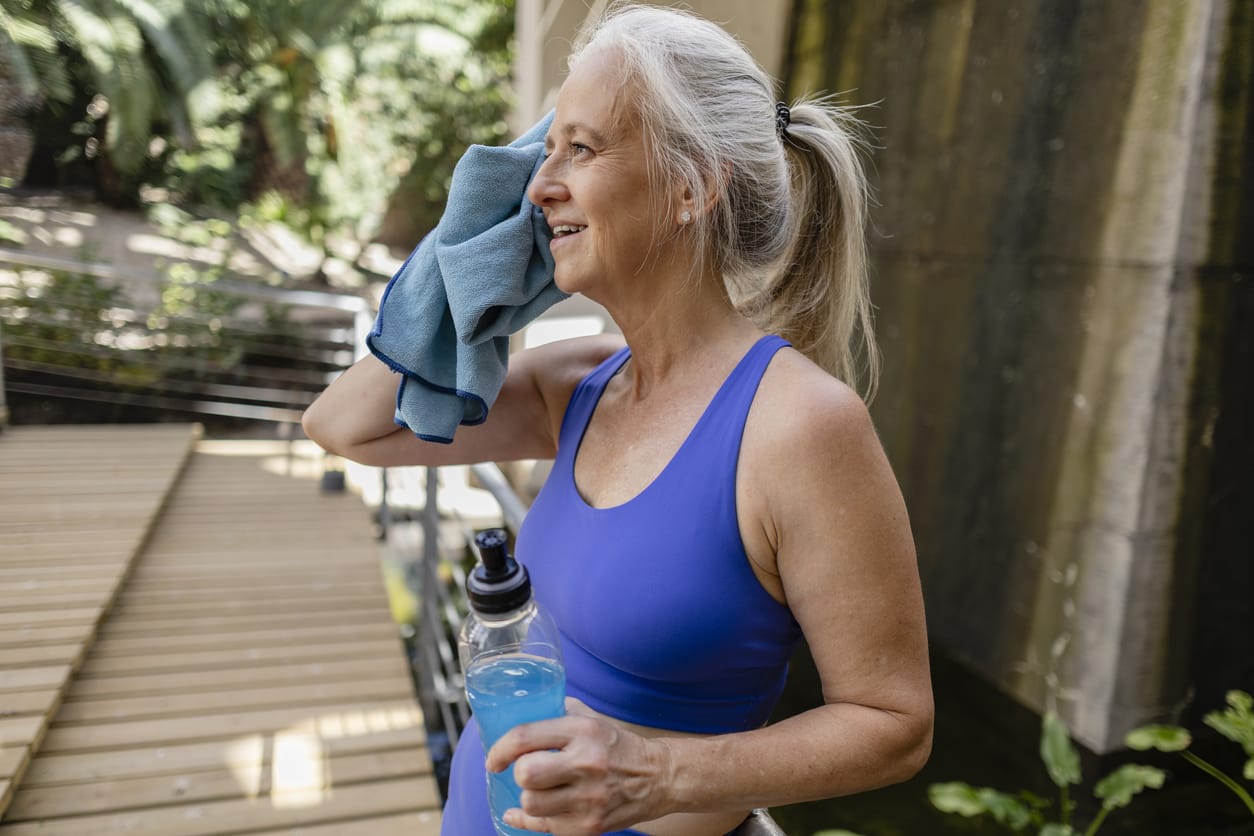Hydration is critically important for maintaining the health and well-being of our elderly loved ones, especially during the hot summer months. It helps regulate body temperature, maintain blood pressure, and prevent infections. However, seniors face unique challenges in staying hydrated due to a decreased thirst sensation and a natural decline in kidney function, which increases their susceptibility to dehydration.
Up to 40% of elderly people may be chronically underhydrated, according to a UCLA study. This means their bodies aren't getting the fluids they need to function properly. These challenges necessitate a proactive approach to ensure that elderly individuals receive adequate fluids to withstand the summer heat and maintain their overall health.
Understanding Hydration Needs for Seniors
Adequate hydration is crucial for regulating body temperature, which can be particularly challenging for seniors during extreme weather conditions. It also supports the optimal functioning of vital organs, such as the heart, liver, and kidneys—functions that become increasingly important as these organs may become less efficient with age. Additionally, proper fluid intake is vital for ensuring effective digestion and facilitating the absorption of nutrients from food, which is essential for sustaining energy and health in elderly individuals. Recognizing these aspects of hydration helps effectively support the health and quality of life of elderly charges.
Factors Affecting Hydration in Seniors
- Decreased Thirst Sensation: With age, the natural thirst mechanism becomes less effective, often resulting in a delayed response to hydration needs.
- Declining Kidney Function: Kidney efficiency decreases with age, impacting the body’s ability to conserve water and balance fluid levels.
- Medication Effects: Common medications seniors take can alter hydration levels through increased fluid loss or side effects such as sweating or diarrhea.
“Drinking water is essential to a healthy lifestyle.”
Ensuring that our elderly loved ones stay adequately hydrated is a top priority, and here are some effective "hydration hacks" to help seniors maintain proper hydration levels:
Hydration Tips for Seniors
- Set Hydration Goals
Daily Water Intake: It's generally recommended that seniors aim for 8-10 glasses of water daily, adjusting based on activity level and health conditions. This ensures they meet their daily hydration needs.
Hydration Reminders: Setting reminders can be very helpful. Seniors can use smartphone apps, timers, or even sticky notes placed around the home to prompt regular water intake throughout the day.
- Choose Hydrating Foods
Water-Rich Foods: Incorporating foods with high water content like watermelon, cucumber, oranges, and yogurt into daily meals and snacks can significantly boost hydration.
Soups and Broths: Adding soups and broths to meals not only offers nutritional benefits but also increases fluid intake in a tasty, enjoyable way.
- Optimize Fluid Intake
Sip Throughout the Day: Encourage seniors to sip small amounts of water consistently throughout the day instead of consuming large quantities all at once, which can be overwhelming and less effective.
Flavor Infusions: To make water more appealing, try infusing it with natural flavors such as lemon, cucumber, or mint. This can make drinking water more enjoyable and encourage regular consumption.
- Monitor Urine Color
Hydration Indicator: Urine color is a practical indicator of hydration status. Light-colored urine generally indicates good hydration, while dark urine suggests a need to increase fluid intake.
Regular Bathroom Breaks: Encouraging regular checks on urine color can help seniors stay aware of their hydration status and adjust their water intake as necessary.
- Limit Dehydrating Beverages
Caffeine and Alcohol: It's advisable to moderate the intake of caffeine and alcohol as these can have diuretic effects, potentially leading to dehydration.
Monitor Medications: Some medications may increase the risk of dehydration. It's important to consult healthcare providers to review any medications and possibly adjust fluid intake to counteract these effects.
By implementing these hydration tips, we can help our elderly loved ones maintain a healthy level of hydration, supporting their overall health and enhancing their quality of life.
Hydration Tips for Outdoor Activities
When taking care of elderly loved ones who enjoy outdoor activities, it's crucial to prioritize hydration, especially as they are more vulnerable to the effects of heat and dehydration. Here are a couple of practical tips to ensure they stay hydrated while enjoying the outdoors:
6. Bring Water Bottles
Always encourage seniors to carry a reusable water bottle. This simple step makes it easy for them to access water continuously, helping to maintain hydration throughout their outdoor adventure. A water bottle serves as a physical reminder to drink regularly, which is particularly important since older adults may not always recognize the early signs of dehydration.
7. Plan Outdoor Time Wisely
To further protect against dehydration, it's advisable to schedule outdoor activities during the cooler parts of the day. Early morning or late afternoon are ideal times because the sun is less intense, which not only reduces the risk of dehydration but also helps avoid heat exhaustion. Planning activities during these times can make outdoor experiences more enjoyable and safer for seniors.
Key Takeaways
Ensuring our elderly loved ones stay well-hydrated during the summer months is crucial for their health and well-being. To maintain proper hydration, set daily water intake goals, incorporate water-rich foods into their diet, optimize fluid intake throughout the day, and monitor signs of dehydration, such as urine color. These hydration hacks are essential for enhancing overall health.





